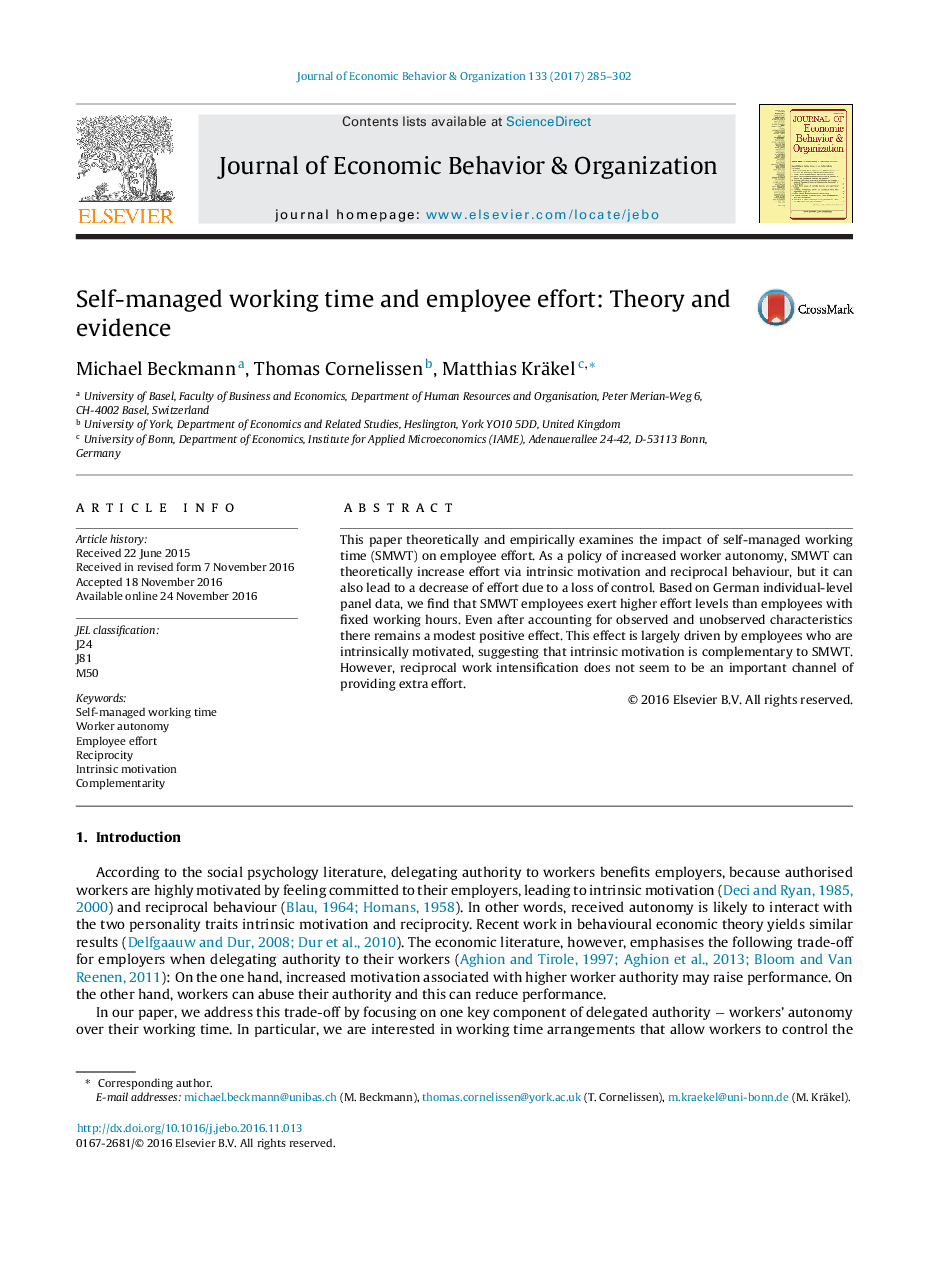| Article ID | Journal | Published Year | Pages | File Type |
|---|---|---|---|---|
| 5034613 | Journal of Economic Behavior & Organization | 2017 | 18 Pages |
â¢We examine the impact of self-managed working time (SMWT) on employee effort.â¢The theoretical results show that SMWT leads to opposing effects.â¢The empirical results document that SMWT induces employees to increase effort.â¢The extra effort turns out to be at a modest level.â¢Intrinsic motivation amplifies the effort effect of SMWT.
This paper theoretically and empirically examines the impact of self-managed working time (SMWT) on employee effort. As a policy of increased worker autonomy, SMWT can theoretically increase effort via intrinsic motivation and reciprocal behaviour, but it can also lead to a decrease of effort due to a loss of control. Based on German individual-level panel data, we find that SMWT employees exert higher effort levels than employees with fixed working hours. Even after accounting for observed and unobserved characteristics there remains a modest positive effect. This effect is largely driven by employees who are intrinsically motivated, suggesting that intrinsic motivation is complementary to SMWT. However, reciprocal work intensification does not seem to be an important channel of providing extra effort.
